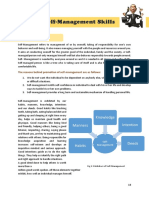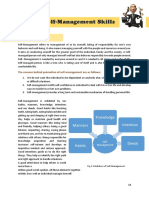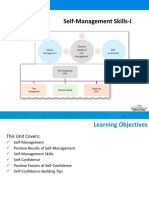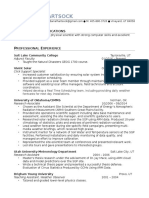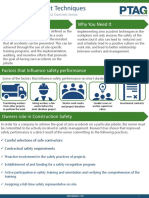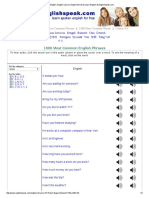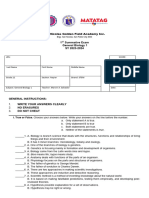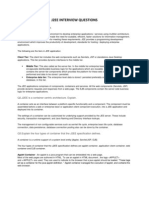0% found this document useful (0 votes)
56 views5 pagesUnit - 2 Self Management Skills
The document outlines self-management skills essential for maximizing productivity and achieving professional goals, including self-confidence, self-awareness, and time management. It emphasizes the positive results of self-management, such as organization and discipline, and provides strategies for improving these skills. Additionally, it discusses the importance of self-confidence and factors influencing it, as well as steps to build self-confidence through goal setting and self-assessment.
Uploaded by
Sarthak GuptaCopyright
© © All Rights Reserved
We take content rights seriously. If you suspect this is your content, claim it here.
Available Formats
Download as PDF, TXT or read online on Scribd
0% found this document useful (0 votes)
56 views5 pagesUnit - 2 Self Management Skills
The document outlines self-management skills essential for maximizing productivity and achieving professional goals, including self-confidence, self-awareness, and time management. It emphasizes the positive results of self-management, such as organization and discipline, and provides strategies for improving these skills. Additionally, it discusses the importance of self-confidence and factors influencing it, as well as steps to build self-confidence through goal setting and self-assessment.
Uploaded by
Sarthak GuptaCopyright
© © All Rights Reserved
We take content rights seriously. If you suspect this is your content, claim it here.
Available Formats
Download as PDF, TXT or read online on Scribd
/ 5


































